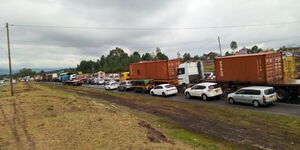The United States has flagged gaps in Kenya’s enforcement of labour rights, warning that weak oversight leaves many workers exposed to unsafe and unfair conditions.
In its Country Reports on Human Rights Practices for 2024, released by the U.S. Department of State’s Bureau of Democracy, Human Rights, and Labour, the U.S. cited failures in implementing workplace safety and wage regulations.
“The Ministry of Labour did not effectively enforce wage, hour, overtime, and OSH laws. Penalties for labour violations were not commensurate with those for comparable violations,” the report stated in part.
According to the report, formal sector employers in Kenya generally complied with workplace safety requirements, but enforcement in the informal economy was a major challenge.
“Enforcement in the informal sector, however, was a problem,” the document read, adding that although the law permits unannounced inspections, coverage remains minimal.
It noted that while the Directorate of Occupational Health and Safety Services (DOHSS) has the authority to inspect factories and work sites, staffing constraints continue to hinder regular monitoring.
“The directorate employed an insufficient number of labour inspectors to conduct regular inspections. The directorate did not have a presence in all counties, and the same inspectors were responsible for wage and hour enforcement,” the report observed.
The report recalled that in 2020, the Office of the Director of Public Prosecutions assumed the mandate for prosecuting labour violations and assessing penalties, working with guidance from OSH inspectors.
However, it noted persistent delays in handling cases. “The Ministry of Labour reported there was a delay in prosecuting labour-related violations, leading to a backlog of cases,” the report stated.
It also noted that inspectors are empowered to destroy hazardous materials and issue prohibition notices for any activity that poses a serious injury risk at the workplace.
Despite these powers, most of Kenya’s workers remain outside the effective reach of enforcement due to the scale of the informal sector. “More than 80 per cent of employees worked in the informal sector, according to World Bank data,” the report revealed.
While informal sector workers are technically covered by wage, hour, and occupational safety laws, the report concluded that “the government did not inspect or enforce violations in the informal sector.”
The findings also raised questions over Kenya’s capacity to meet labour protection standards, especially for the majority of its workforce operating outside formal employment structures.












